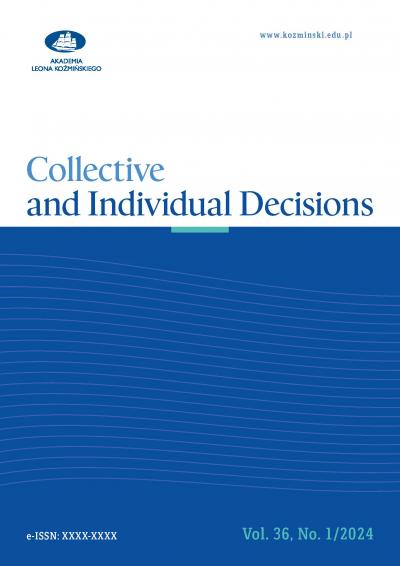Różnice między kobietami i mężczyznami w zaufaniu, reakcjach na naruszenie zaufania i odbudowie zaufania
Anna Macko
Kozminski University
8/2020 (33) Decyzje
DOI 10.7206/DEC.1733-0092.140








